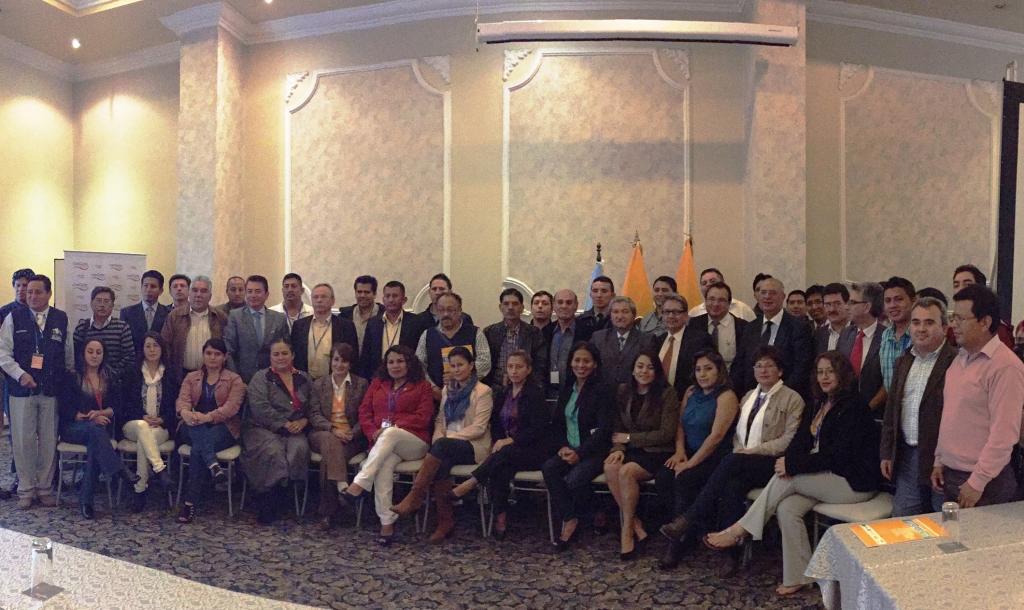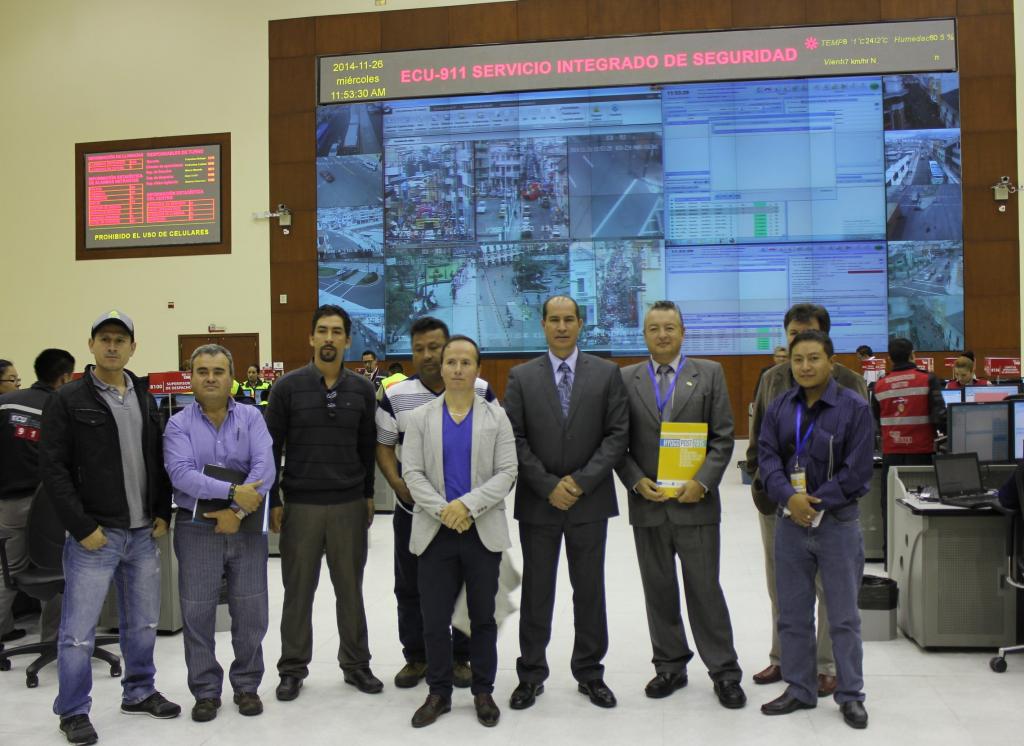Enhancing the Capacities of Local Governments to Reduce Disaster Risk in Latin America
27 November 2014, Quito, Ecuador – Latin America and the Caribbean in particular has always been exposed to a wide variety of natural hazards including earthquakes, volcanoes, storms, extreme temperatures, droughts, floods, landslides, forest fires, among others. The global trend toward increasing climate variability is also exacerbating many of these hazards. According to the World Bank, seven of the world’s top 15 countries exposed to three or more hazards are located in Latin America and the Caribbean.
 Understanding this need, UNITAR’s Decentralized Cooperation Programme (DCP) hosted the workshop “Resilience and the Hyogo Framework for Action” from 24 to 26 November in Quito, Ecuador. The workshop brought together 183 prefects and local government officials responsible for disaster management and risk reduction to exchange best practices, experiences and approaches to better manage disasters.
Understanding this need, UNITAR’s Decentralized Cooperation Programme (DCP) hosted the workshop “Resilience and the Hyogo Framework for Action” from 24 to 26 November in Quito, Ecuador. The workshop brought together 183 prefects and local government officials responsible for disaster management and risk reduction to exchange best practices, experiences and approaches to better manage disasters.
The workshop included experts from several organizations. Ms. Nury Bermudez from the United Nations Development Programme (UNDP) in Ecuador was the main speaker. As UNDP’s National Coordinator for Risk Reduction, she presented an overview of urban risk and current trends, as well as vulnerability factors that increase risk and how local governments can address such factors.
Mr. Bernardo Requena, Regional Director of the Development Bank of Latin America (CAF), shared information about the work of the World Bank in providing technical assistance to governments from the region to help them to integrate disaster risk reduction (DRR) principles in sectors such as energy, transport and logistics.
Ms. Estrella Merlos from UNITAR gave an overview of the Hyogo Framework for Action (HFA) global implementation led by UNISDR and its progress in the Latin American region. She also presented the possible elements of the HFA2 that will be adopted in the 3rd World Conference on Disaster Risk Reduction in 2015 in Sendai in Japan and opportunities for DRR training for local governments through the CIFAL centres in the Americas.
Mr. Rafael del Río Miranda from the National Secretary for Risk Management of Ecuador shared the country’s national vision for risk reduction and approach for the upcoming years. He shared his experience in regards to action plans for DRR.
 The workshop included a visit to ECU911, Ecuador’s coordinated security system. Participants were able to learn about how collaboration happens in real-time across government entities in the case of disasters. ECU911 represents a regional model for cross-sectoral collaboration to ensure citizen’s security and to facilitate timely information for enhanced response to disasters.
The workshop included a visit to ECU911, Ecuador’s coordinated security system. Participants were able to learn about how collaboration happens in real-time across government entities in the case of disasters. ECU911 represents a regional model for cross-sectoral collaboration to ensure citizen’s security and to facilitate timely information for enhanced response to disasters.
In the framework of this workshop, the Prefect of the Decentralized Government of the Province of Pichincha (GADPP) Mr. Gustavo Baroja and Ambassador Luis Gallegos, Senior Fellow of UNITAR launched the new International Training Centre for Local Actors (CIFAL) Quito. The Centre represents a beacon for collaboration between a local government and UNITAR to provide training to government officials and leaders from Ecuador and Latin America’s Andean Region. The Centre is hosted by the GADPP with the support of local partners such as the CONGOPE (the National Association of Decentralized Governments of Ecuador).
CIFAL Quito will specialize in three areas: 1. Resilience and Disaster Risk Reduction, 2. Migration and Development, and, 3. Corporate Social Responsibility in the Americas. Its new Director is Dr. Pablo Ponce, a former three-term Councilman that stepped down mid-2014 after serving for twelve years with Quito’s local government. He is also a lawyer and a university professor.
Photos: participants of the workshop

